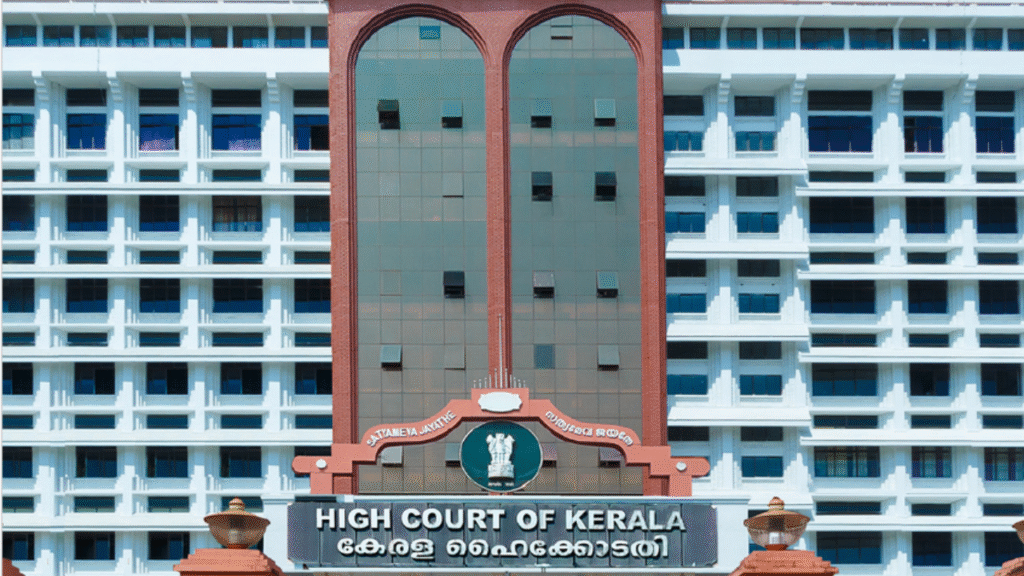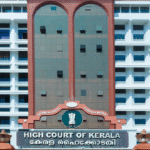CRIMINAL LAW – ARREST AND DETENTION – COMPUTATION OF 24-HOUR PERIOD FOR PRODUCTION BEFORE MAGISTRATE – ARTICLE 22(2) OF THE CONSTITUTION OF INDIA – NARCOTIC DRUGS AND PSYCHOTROPIC SUBSTANCES ACT, 1985 (NDPS ACT) – BHARATIYA NAGARIK SURAKSHA SANHITA, 2023 (BNSS)
2025 KER 60624
IN THE HIGH COURT OF KERALA AT ERNAKULAM
BECHU KURIAN THOMAS, J.
B.A. No. 8581 of 2025; 12th day of August, 2025
Key Legal Question: When does the mandatory twenty-four hour period for producing an arrested person before a Magistrate, as stipulated by Article 22(2) of the Constitution, commence? Does it begin from the time of formal arrest recorded by the police or from the moment a person’s liberty is effectively curtailed?
Facts of the Case: The Petitioner, Biswajit Mandal, aged 28, was accused in Crime No. 2 of 2025 of the Narcotics Control Bureau, Cochin Zonal Unit, for offences under sections 8(c) r/w 20(b)(ii)(C), 28, and 29 of the NDPS Act, 1985, involving possession of 26.92 Kg of ganja. The prosecution alleged that the incident occurred on January 25, 2025, at Ernakulam Junction Railway Station. The petitioner claimed he was taken into custody at 3:00 PM on January 25, 2025, but his arrest was formally recorded at 2:00 PM on January 26, 2025, and he was produced before the Magistrate only at 8:00 PM on January 26, 2025.
Arguments:
Petitioner (Adv. Fathima Sulfath N.B.): Contended that the arrest was vitiated due to failure to communicate grounds for arrest and detention beyond 24 hours, violating Article 22(2) of the Constitution.
Respondent (Spl. Public Prosecutor R. Vinu Raj): Argued that seizure was completed by 7:00 PM on January 25, 2025, arrest at 2:00 PM on January 26, 2025, and production by 8:00 PM, all within 24 hours, thus no illegality.
Amici Curiae (Ms. Nikhina Thomas and Ms. Neha Babu): Argued that the 24-hour clock for production begins from the moment of effective curtailment of liberty, not formal recording of arrest. They submitted that the sequence of events indicated production beyond 24 hours, constituting unrecorded custody and illegal detention, citing D.K. Basu v. State of W. B. and Joginder Kumar v. State of U.P. and Others.
Court’s Reasoning:
Importance of Individual Liberty: The Court emphasized the balance between individual liberties and criminal investigation, noting that fundamental rights, particularly Article 21, are the “soul” of the Constitution, and courts must intervene against deprivation or curtailment of liberty.
Critique of Police Power: Drawing from Joginder Kumar, the Court observed that the power of arrest is a chief source of corruption and should not be exercised routinely, as denying a person liberty is a serious matter.
Unrecorded Custody: Referring to D.K. Basu, the Court highlighted that human rights violations often occur during investigation through “screening arrest” by not recording it or describing detention as prolonged interrogation, leading to “unrecorded periods of custody”.
Interpretation of ‘Arrest’ and ‘Custody’:
Article 22(2) uses “arrested and detained,” a phrase often misused by police to assert time starts from actual arrest.
Citing Niranjan Singh, the Court clarified that a person is in “custody” when in duress or under the physical hold of an officer with coercive power, regardless of formal arrest. It rejected “equivocatory quibblings” about “informal custody” or “detained for interrogation” as evasions of law.
State of Uttar Pradesh v. Deoman Upadhyaya affirmed that submission to custody by word or action is sufficient, and formal procedures under Section 46 of Cr.P.C. (now Section 43 of BNSS) are not always required.
State of Haryana v. Dinesh Kumar and Directorate of Enforcement v. Deepak Mahajan defined “arrest” in its ordinary sense as the apprehension, restraint, or deprivation of personal liberty, irrespective of the legality of the arrest. The essence is whether the person has been deprived of their liberty to go where they please.
The term ‘arrest’ signifies a complete restraint on freedom of movement or holding a person against their interests by an authority. Actual restraint by word, action, or conduct suffices, and failure to record an arrest or prolonged interrogation does not preclude these periods from constituting arrest.
Commencement of 24-Hour Period: The Court unequivocally held that the period of twenty-four hours to produce an accused before the Magistrate commences from the time the accused was effectively detained or his liberty was curtailed, not when the actual time of arrest is recorded by the police.
Application to Petitioner’s Case: The Court found that the petitioner’s liberty was effectively curtailed from 3:00 PM on January 25, 2025, when he was taken into custody by NCB officers. His production before the Magistrate at 8:00 PM on January 26, 2025, amounted to an unrecorded period of custody, indicating illegal detention.
Decision: The Petitioner was released on bail subject to conditions including:
- Executing a bond for Rs. 1,00,000/- with two solvent sureties.
- Cooperating with the trial and investigating officer.
- Not intimidating or influencing witnesses or tampering with evidence.
- Not committing similar offences while on bail.
- Not leaving the State of Kerala without court permission.
The Court also placed on record its appreciation for the assistance rendered by Ms. Nikhina Thomas and Ms. Neha Babu, the Amici Curiae.


